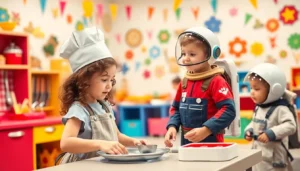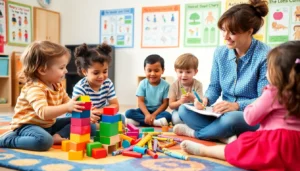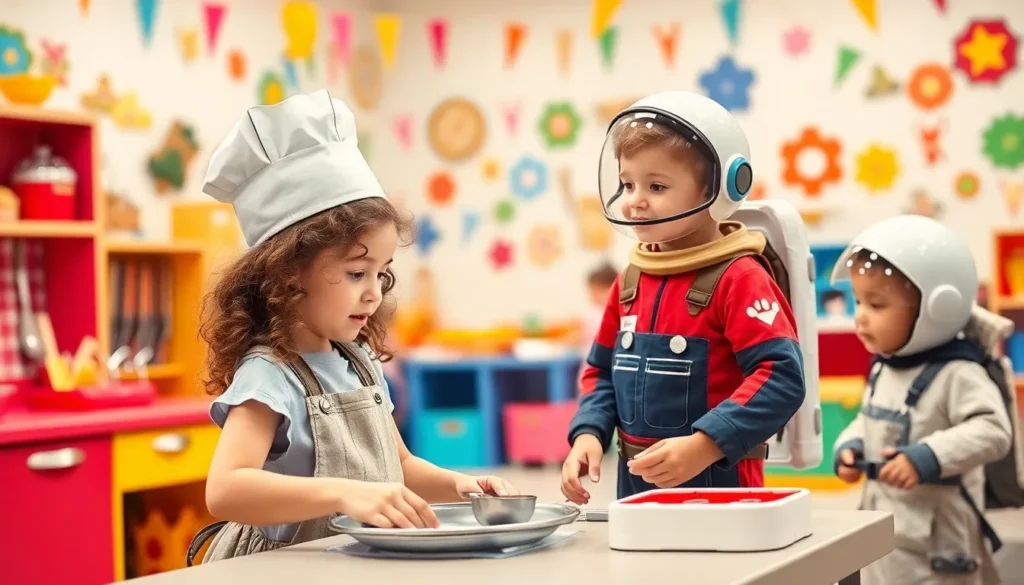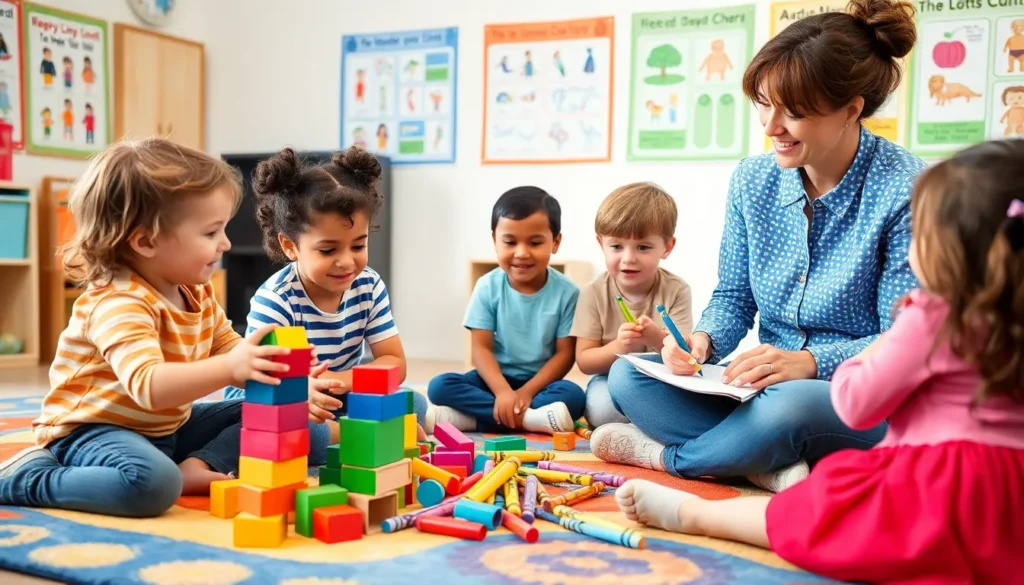Table of Contents
TogglePlaytime isn’t just a break from learning; it’s where the magic happens. In early childhood, play fuels creativity and builds the foundation for lifelong skills. Who knew that a simple game of tag or a round of dress-up could shape future innovators and leaders? It’s true—play is serious business, and the right quotes can capture its essence perfectly.
From wise educators to playful philosophers, countless voices have celebrated the importance of play. These quotes not only inspire parents and educators but also remind us that laughter and imagination are essential ingredients in a child’s development. So buckle up and get ready to explore a treasure trove of insights that highlight why play is the ultimate superhero in early childhood. After all, who wouldn’t want to champion the cause of fun?
The Importance of Play in Early Childhood
Play serves as a fundamental aspect of early childhood development. Engaging in playful activities helps children build cognitive, social, and emotional skills necessary for later life. According to the American Academy of Pediatrics, play fosters creativity, encourages problem-solving, and enhances communication skills in young children.
Physical activities like tag or dress-up promote not only physical health but also imaginative thinking. Children learn to navigate social situations through cooperative play, developing empathy and understanding of others. Research shows that play experiences contribute significantly to a child’s ability to form relationships and work in teams.
Quotes from educators emphasize this focus on play. Maria Montessori stated, “Play is the work of the child,” highlighting play’s importance as an essential learning tool. Friedrich Froebel, the founder of the kindergarten movement, noted, “Play is the highest form of learning,” reiterating the role of play in intellectual development.
Additionally, engaging in structured and unstructured play allows children to express themselves freely. They explore their world and experiment with ideas during playtime, which cultivates curiosity and resilience. Such experiences deepen children’s understanding of their surroundings and promote lifelong learning.
Ultimately, parents and educators should champion play as a valuable educational method. Recognizing its significance encourages a well-rounded approach to childhood development, preparing children for future challenges in school and life. Prioritizing play elevates the importance of early childhood learning, ensuring children thrive emotionally, socially, and intellectually.
Inspirational Quotes About Play
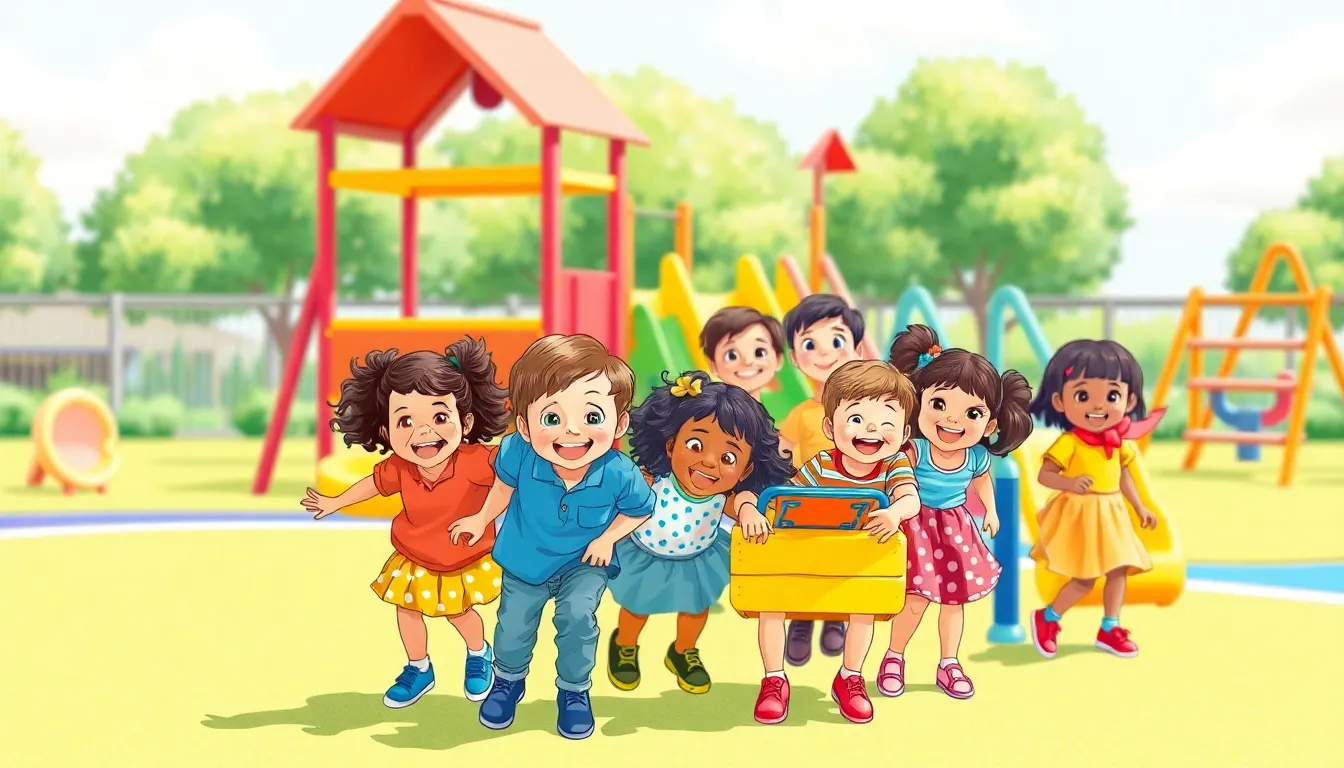
Play serves as a foundation for early childhood development, inspiring creativity and learning. Below are influential quotes that highlight the significance of play.
Quotes from Experts
“Play is the highest form of research,” said Albert Einstein. This statement underscores play’s role in exploration and discovery. Similarly, child psychologist Lev Vygotsky emphasized, “Play is a leading source of development.” His insight reflects play’s impact on cognitive growth. According to Maria Montessori, “Play is the work of the child,” showing that play is essential for a child’s learning. Finally, Friedrich Froebel, the founder of the kindergarten concept, noted, “The child is both a playmaker and a maker of the world,” celebrating how play shapes understanding and agency.
Quotes from Authors
“Children must enjoy the act of play.” This belief from author and educator Loris Malaguzzi captures the joyful essence of play. Additionally, C.S. Lewis stated, “You’re never too old to set another goal or to dream a new dream,” emphasizing lifelong playfulness. Notably, author and educator Rita Pierson remarked, “Kids don’t learn from people they don’t like,” highlighting relationships’ importance in play. Lastly, E.B. White beautifully articulated, “It is the privilege of those who fear to see that they will never see anything.” This encourages adults to embrace a child’s playfulness without reservation.
The Role of Play in Development
Play serves as a cornerstone for holistic child development, nurturing various essential skills. Recognizing its value can transform educational approaches and parenting strategies.
Cognitive Development
Play stimulates cognitive growth in children by enhancing critical thinking and problem-solving abilities. Engaging in imaginative play allows them to develop reasoning skills as they navigate different scenarios. Simple activities, such as building with blocks, encourage children to experiment with spatial relationships. Children often display creativity through pretend play, which fosters innovation. Quotes from educational leaders emphasize this notion, highlighting play’s capacity to foster inquiry. The American Academy of Pediatrics emphasizes that play supports cognitive development, providing a foundation for learning that extends well into adulthood.
Social and Emotional Growth
Play significantly influences social and emotional development in children. Interactions during play teach cooperation, negotiation, and empathy. Through shared activities, children learn to express feelings and handle conflicts in a safe environment. Play promotes teamwork, allowing kids to understand diverse perspectives. The positive effects of social play extend beyond childhood, cultivating essential relationship skills. Influential educators advocate for the importance of social play in classroom settings, showcasing its impact on emotional resilience. Fostering a playful environment nurtures self-esteem and confidence in children, equipping them for future social challenges.
Understanding Quotes in Context
Quotes about play reveal deeper insights into its role in early childhood development. Maria Montessori emphasized that play serves as the work of the child, highlighting how crucial it is for learning. Friedrich Froebel asserted that play fosters understanding and nurtures agency, underscoring the importance of creative activities.
Albert Einstein’s perspective on play reflects its value, describing it as the highest form of research. Through this lens, play is not merely leisure but a fundamental method for children to explore concepts and ideas. Lev Vygotsky marked play as a leading source of development, illustrating its impact on cognitive and social growth.
The American Academy of Pediatrics reinforces this by stating that play constructs essential skills. Children engaged in play cultivate cognitive abilities, enhance problem-solving skills, and develop creativity. Social play promotes cooperation and negotiation, essential elements for forming relationships.
Quotes from educators like Loris Malaguzzi and Rita Pierson emphasize the joy inherent in play. Their insights encourage adults to appreciate children’s playful nature, recognizing it as a vital component of development. Emotional resilience strengthens as children learn to express feelings and resolve conflicts during play.
Understanding these quotes helps caregivers and educators advocate for play in educational settings. Recognizing the value of structured and unstructured play enriches childhood experiences. Quotes illuminate the connection between play and comprehensive skill development, making it clear that fostering a playful environment directly contributes to nurturing future innovators and leaders.
Embracing the power of play in early childhood is essential for nurturing well-rounded individuals. The insights from various educators and philosophers reinforce that play is more than just fun; it’s a fundamental part of learning and development. By valuing play, parents and educators can create environments that foster creativity, empathy, and problem-solving skills.
Encouraging children to engage in both structured and unstructured play not only enriches their childhood experiences but also lays the groundwork for lifelong learning. As they explore their world through play, children develop critical social and emotional skills that will serve them well throughout their lives. Recognizing the importance of play is a crucial step toward supporting children’s growth and helping them thrive in an ever-changing world.


